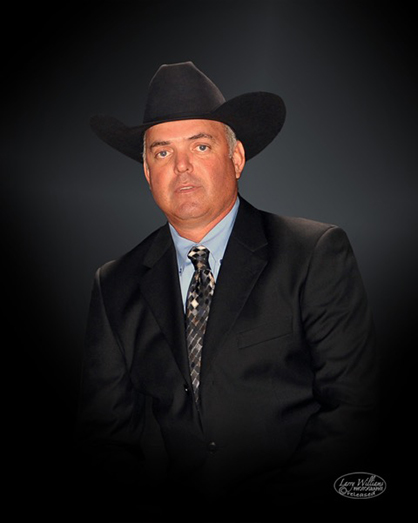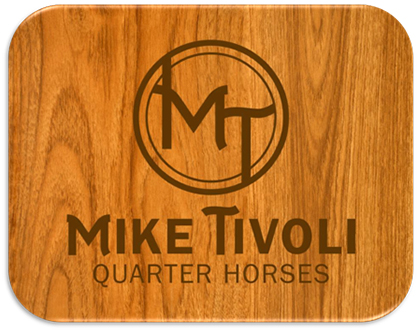Tips With Tivoli- 6 Tips to Make Your Training Experience the BEST!
So you’ve decided to send your horse off to the horse trainer. Professional training can be a great tool for helping you and your horse meet your goals and grow in your partnership together. It can also be a nerve-wracking and intimidating process entrusting someone else with the care of your horse. We have been in the professional training business for almost 30 years and truly enjoy working with our customers to make their dreams of enjoying and showing their horse a reality. We also understand this is a big step for many people, involving a lot of faith and trust, not to mention a significant investment of financial resources and time. Do your homework and find a reputable trainer with great references and a proven track record of success. Once you have found one, here are some tips for having a good experience!
#1- COMMUNICATE
Good communication is the foundation of any successful relationship. So speak up! At the outset, clearly communicate what your goals are, what your expectations are, and what you are looking for in a horse trainer. Understand that the trainer will also communicate what his/her program entails, and what he hopes to accomplish. Make sure you are a reasonably good fit for each other before sending your horse. We have a lengthy and detailed document we give to all of our new customers setting forth our general policies and all of our various charges and rates.
Regardless of whether your trainer puts it in writing or not, make sure you know what you are getting into by asking lots of questions and making sure you understand what is expected of you.
- Do you supply your own blankets?
- What are the hauling charges?
- Is there a day fee?
- Will you be billed for shoeing or do you need to leave a check?
- How many lessons are included in your monthly training fee?
We try to anticipate any questions a customer may have and answer them at the outset, but don’t be afraid to quiz the trainer. Don’t assume the trainer knows what you are thinking. Give her the opportunity to explain her policy or reasoning. Most trainers sincerely want to give you the best result possible.
#2- BE PATIENT
We like to have 30-60 days to evaluate a prospect to determine what level of training that horse requires and what his potential is. Also, understand that 30 days is not long enough to tell whether your horse is the next Congress Masters Champion. Don’t have unrealistic expectations. Try to avoid having preconceived notions of how long it will take to reach a certain milestone. When a child enters kindergarten, no one can predict the exact day she will begin reading on her own. We know it is likely to happen sometime between 5 and 7 years old, but we can’t determine whether she will be reading Ann of Green Gables in February of 2nd grade. Likewise, with your horse, a trainer can’t always predict the speed with which he will train up and be ready for an amateur to show. Expecting a two-year-old to be ready in June for the big futurities is asking a lot of a horse trainer who climbs on your horse for the first time in January. So try to be patient and let the individual horse dictate the schedule, rather than the other way around. If you allow the horse to tell you when he’s ready to show, you are less likely to be disappointed if that day is in August versus May.
Similarly, if you bring a trainer a broke horse and have certain goals as an exhibitor, be patient with yourself. It takes even the greatest athletes many years to perfect their skills. Whether your goal is learning to lope or qualifying for the World Show, the path to success is often not a straight or easy one. But if you focus on the incremental improvements you are making every time you ride, the entire journey is rewarding, not just the trophy at the end of the road.
#3- BE RESPECTFUL
You made the decision to send your horse to a trainer because you value his professional skills. Understand that he is just like any other professional you engage, whether it’s a doctor, lawyer or electrician. You don’t drop by your doctor’s office and expect to be seen without an appointment. If you do, you can expect a rather long wait. Your electrician isn’t going to bump another customer off his schedule to install an outlet for you. We don’t mind if people stop by, but we encourage our customers to set up a time that is mutually convenient so that we can give them our undivided attention. Some of our customers have a set time they come every week, others call in advance to see when they can take a lesson. Don’t expect to drop in unannounced and demand that your trainer drop everything he’s doing to ride your horse. This makes it difficult for the trainer to manage his time and get all of his horses worked. It is also disrespectful to the other customers who may have set up an appointment to ride. Barn time is often social time, and we love visiting with our customers. But we also have 20+ horses to care for in a day, and have to get our work done so that you, the customer, feel like your horse is making progress.
Likewise, understand that while trainers don’t expect to keep 9-5 hours, they do have families and a home life and need personal time. So don’t expect to take a lesson on Christmas Eve. During the show season, trainers often work 7 days a week around the clock. If we get a rare Sunday at home, we may need it to do maintenance on our house or facility. Trainers also have children who have ballgames and concerts. We may work until 11 pm one night to make time to see our kids play ball. Trainers understand that customers have jobs and busy schedules too. We don’t expect you to take a vacation day just to come see your horse. We try to be available when it’s convenient for our customers.
We want our customers to become competent riders. There are some experienced riders who bring a broke horse to the trainer and can get along with an occasional lesson and a quick tune-up at the horse show. But the vast majority of us need to practice at home to get better in the show pen. If you are a novice rider, you need to spend as much time in the saddle as possible. Make riding a priority. You will get so much more out of your training experience if you put in the hard work to become a better rider. Don’t expect to get on your horse at the show and have a good ride if you aren’t physically fit and well practiced. If your horse isn’t broke enough yet for you to ride, then ask questions and learn about the training process. Don’t sit on the rail wondering why the trainer is doing that. DO stand in the center of the pen, where the judge would be standing, and ask the trainer to explain what he is working on. Some trainers are better at articulating their methods than others, but you will get so much more out of your experience if you understand the rationale behind what the trainer is doing. Horse training is a fascinating process – learn as much about it as you can!
#5- PITCH IN!
We have a lot of local customers who enjoying hanging around the barn and spending time with their horses. We love it when they like to brush and saddle their horse and lunge, or give their horse a bath. Ask how you can participate in the care of your horse. If you enjoy the dirty work, get dirty!
Sometimes customers are afraid they won’t do something right or don’t know how to wrap, put in a tail, properly adjust a bridle, etc. Ask the trainer to show you so you can help out. If you want your trainer to focus on preparing your horse, rather than picking his stall, washing his tail, or polishing the silver on his bridle, then try to help out as much as you can. Grooming your horse strengthens your connection with him and helps him make positive associations with your presence.
#6- HORSE FIRST
In everything that you do, keep the best interests of your horse paramount in your mind. Your horse is in a vigorous and demanding training program that asks him to put forth his best effort every day. He needs the very best feed, bedding, vet care, and general maintenance to perform to his highest potential.
Don’t skimp on feed, farrier care, vet work. If money is an issue, budget for fewer horse shows or a less expensive outfit. We all love to go show, but if your horse isn’t in tip-top condition, he is better off staying home until he is. Also understand that mentally, a horse is happiest and most productive when we respect his limits and capabilities. Not every horse is physically or mentally capable of being everything a customer hopes he can be. We may want a Maserati, but what we’ve got is a Ford Fiesta. Sometimes the horse isn’t a good fit or simply isn’t capable of doing what we are asking it to do. Do be honest with yourself and ask whether it’s fair to expect your horse to perform at a certain level. Even if I practice 24 hours a day, I will never be able to slam-dunk a basketball – it’s just not in my genetic makeup.
It’s no different with horses. Don’t try to fit a square peg into a round hole. Be fair to the animal and give him a job he can be good at. And if you finally do get that horse to a place where he is fit and ready to go show, do respect your trainer’s advice on how best to prepare the horse at the show. You may think you need two hours to practice your equitation, but your horse may only need a quick 15-minute warm-up to be in the best frame of mind to show. You may want to show in six different classes that day, but maybe your horse can really only handle three. We ask them to give us 100% when we enter that show pen. Give your horse every opportunity to be his best.
I hope these tips are useful in getting your training relationship off to a great start.
Mike Tivoli specializes in Western Pleasure, Ranch Riding, Longe-line fitting, Hunter Under Saddle, and Western all around events. From fitting yearlings and starting colts, to exhibiting seasoned show horses at the most prestigious events, Mike’s career has encompassed every aspect of training and showing horses.
Tivoli’s journey to becoming a World Champion horse trainer began after high school. He took a job working for a local trainer, Gil Galyean. Galyean who would go on to become a multiple World Champion and was recently crowned the industry’s first Million Dollar horse trainer. After working with Galyean for a decade, Mike made the decision to start his own business, Mike Tivoli Quarter Horses. Since 1993, Mike has helped countless horses and riders reach their highest potential in the show pen, with multiple Congress, NSBA World Show, and major futurity top 10s, top 5s, Reserve and World Champion titles to his credit.













